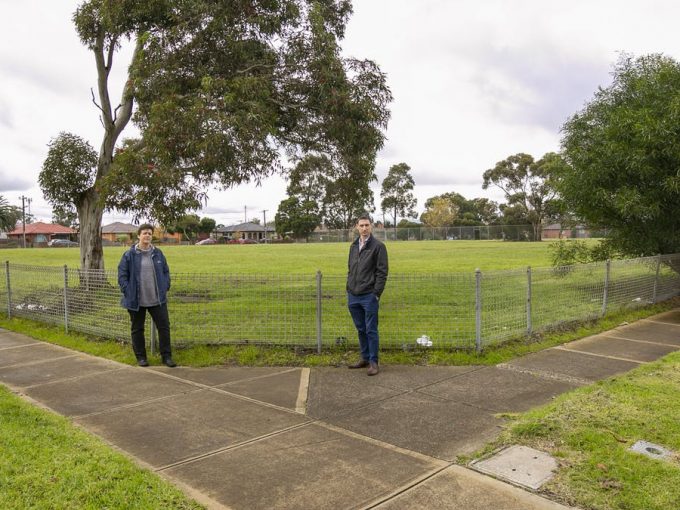How policy makers regard and manage the ownership and use of land has profound consequences for the affordability of our homes and the inclusiveness of our neighbourhoods.
In our new report, Land policy for affordable and inclusive housing: An international review, we shed light on the range of land policy instruments that governments can use to inform best practices that improve housing affordability and promote more inclusive neighbourhoods.
These instruments include: public land banking, public land leasing, land re-adjustment, land value recapture, regulatory planning, neighbourhood planning and regulating the platform real estate industry.
The geographical scope of the illustrations presented is both broad and deep and includes Europe, Asia, North America and Australia to provide national, regional and local territorial perspective.
The report begins by defining land policy strategies and contrasting the development trajectories of two of the world’s most populous countries: India and China, emphasising the importance of adequate collection and transferal of fiscal resources, appropriate administrative capabilities at the right territorial scale, strategic public land banking and purposeful land use regulation.
Land policy is not always good policy. It can play both a positive role securing, promoting and protecting affordable housing and also a negative role in raising costs, reducing access and driving households from certain neighbourhoods.
Indeed, land policy can discriminate between different groups: including or excluding households by their composition, income, racial origin and religious beliefs at the metropolitan and even national level.
Land policy used in an authoritarian and discriminatory way can segregate communities and disrupt households – especially with regards to politically and economically vulnerable populations.
Citizens and their governments are important stakeholders in land policy decisions. They have human rights and are not merely passive shareholders in land development processes.
They can play a constructive and active role in determining the use and value of land and how this is shared and contributes to their collective wellbeing.
A more strategic long-term vision can also steer markets to deliver a more mission focused and inclusive investment and development outcomes.
Land policy interacts with the market to enable, supplement, direct or replace interactions between investors, developers, owners and users, in order to promote social cohesion, economic well-being and environmental sustainability.
It is more effective when interventions aim to shape desired market processes and outcomes through strategic land banking, purposeful leasing and comprehensive land use planning.
When combined with mission focused developers and housing providers such as public land bankers, co-operative and not for profit housing developers, such policy can be even more effective over the long term.
Where these institutions and fiscal resources are lacking, contributions from private development can also be harnessed to fund necessary investments to promote more affordable and inclusive living areas.
There are major challenges facing cities and localities as real estate investment becomes ever more capacious, global and less responsive and accountable to local communities.
Some city governments are reasserting control from global investors, digital real estate platforms and corporate landlords, regulating short term letting and protecting affordable housing, but they too need public policy leadership and support.
Cheap global credit has accelerated the process of financialization in the 21st century. In the absence of effective financial regulation and land policy and more flexible working conditions, this has generated worsening affordability, insecurity of incomes and occupancy rights, threatening secure access to affordable housing.
To combat these challenges, it is important that the supply and preservation of affordable and social housing be improved.
This will require a more proactive approach to land policy coupled with a more effective investment by citizens, social enterprises, businesses and most importantly their national and local governments in the immediate future.
Our international review reveals the great variety of tools available to policy makers to promote both housing affordability and social inclusion.
Land policy can be a powerful and cost-effective tool to affect positive housing and urban outcomes – especially where direct interventions are made through strategic land banking, purposeful leasing and land use regulation and combined with key partners such as public, co-operative and not for profit housing developers.
Where collective resources are lacking planning contributions can also be used to fund necessary investments which can make quality living areas more affordable and inclusive.
However, land policy can also be used in an undesirable and authoritarian way segregating communities, disrupting vulnerable communities, paying little respect nor compensation – especially with regards to indigenous and vulnerable communities.
Citizens and their governments are important stakeholders in land policy decisions, not mere passive shareholders in land development outcomes. They can play a constructive and active role in determining the use and value of land and how this is shared and contributes to their collective well-being.
A more strategic long-term vision can also steer markets to deliver a more mission focused and inclusive outcome, promote sustainable development and protect biodiversity.
However, land policy is also a focus of constant struggle and tension over property rights, allocative processes and between multiple stakeholders with uneven resources.
There are major challenges facing local land policy with investment in real estate becoming ever more capacious, global and less rooted in local communities.
Some city governments are reasserting control from global corporate finance and real estate investors, regulating short term letting and protecting affordable housing, but they too need national support.
At the national level land and housing policy is more often focused on economic growth and supply at any cost – accelerating the process of indebtedness and financialization which in turn places pressure on rents, secure occupancy and housing costs, at the expense of local citizens and affordable and social housing landlords.
To combat these challenges, protecting and expanding the scarce supply of affordable and social housing will require a far more proactive approach to land policy by both city and their national governments in the immediate future.




